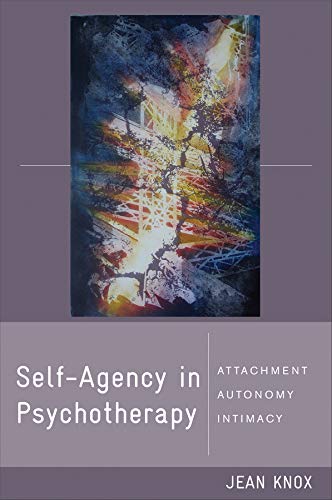 Reddit reviews Self-Agency in Psychotherapy: Attachment, Autonomy, and Intimacy (Norton Series on Interpersonal Neurobiology)
Reddit reviews Self-Agency in Psychotherapy: Attachment, Autonomy, and Intimacy (Norton Series on Interpersonal Neurobiology)
We found 1 Reddit comments about Self-Agency in Psychotherapy: Attachment, Autonomy, and Intimacy (Norton Series on Interpersonal Neurobiology). Here are the top ones, ranked by their Reddit score.

Okay, returning now..
I'm just echoing what I'm reading of others who are deep in psychotherapeutic work and/or research; Jung's model and theoretical positions are finding correspondence to other more contemporary positioning and propositions constructed via the route of cognitive science, neuroscience, developmental psychology, dream research and so on. Apparently.
Here's a link regarding psychiatrist Erik Goodwyn's text The Neurobiology of the Gods. In this he outlines how Jung's dream theories and modeling are cohering to current dream research perspectives, among other congruities of a Jungian perspective (of note, he has published more since the publication of this material so presumably he has developed further the Jungian links?).
John Haule, a Jungian analyst, has published a couple of volumes of what is said to be an ongoing series of books called Jung in the 21st Century. He asserts he has researched 300 or so neuroscience papers, and similarly finds convergences of Jungian perspectives and thought in current empirical research and theoretical positioning.
Preface to John Ryan Haule's Jung in the 21st Century
Jean Knox, another Jungian analyst and psychiatrist, also finds connections between Jungian concepts and perspectives and more recent findings. A couple of the books she has published here and here.
I haven't read Knox very deeply yet, only cursorily (in a paper where she draws connections with a cognitive science concept image-schemas and archetypes), but her pov is thought provoking and promising.
I started to compile links to some papers that sit in the regions of empiricism and Jungian territory here but I haven't got much further with that particular angle on things yet, distracted by other concerns.
Edit: another link
to a paper not in that list, Recent Neurological Studies Supportive of Jung’s Theories on Dreaming, Robert J Hoss, M.S.
(Note: if you can't access the papers linked to there pm me, there's options).
So..I'm not sure what to make of it presently, other than it tentatively looks like there is some validation of Jung's ideas taking place or able to be mapped in regards to some regions of the sciences.
On framing and approaching science, Jung says in CW 7:
>A genuinely scientific attitude must be unprejudiced. The sole criterion for the validity of an hypothesis is whether or not it possesses an heuristic—i.e., explanatory—value.
para.216
Additionally, in the same volume he states:
>.. Everything about this psychology is, in the deepest sense, experience; the entire theory, even where it puts on the most abstract airs, is the direct outcome of something experienced.
Ibid., para.199
>For me, scientific research work was never a milch-cow or a means of prestige, but a struggle, often a bitter one, forced upon me by daily psychological experience of the sick. Hence not everything I bring forth is written out of my head, but much of it comes from the heart also, a fact I would beg the gracious reader not to overlook if, following up the intellectual line of thought, he comes upon certain lacunae that have not been properly filled in. A harmonious flow of exposition can be expected only when one is writing about things which one already knows. But when, urged on by the need to help and to heal, one acts as a path-finder, one must speak also of realities as yet unknown.
Ibid., para.200
>..So every man whose fate it is to go his individual way must proceed with hopefulness and watchfulness, ever conscious of his loneliness and its dangers. The peculiarity of the way here described is largely due to the fact that in psychology, which springs from and acts upon real life, we can no longer appeal to the narrowly intellectual, scientific standpoint, but are driven to take account of the standpoint of feeling, and consequently of everything that the psyche actually contains. In practical psychology we are dealing not with any generalized human psyche, but with individual human beings and the multitudinous problems that oppress them. A psychology that satisfies the intellect alone can never be practical, for the totality of the psyche can never be grasped by intellect alone. Whether we will or no, philosophy keeps breaking through, because the psyche seeks an expression that will embrace its total nature.
Ibid., para.201
Still reads as relevant to me (but I'm priorly biased and predisposed to consider the feeling dimension, phenomenological and parapsychological regions of psyche).
Hope that gives you something to go on after your own interests, if you weren't already familiar with the material.